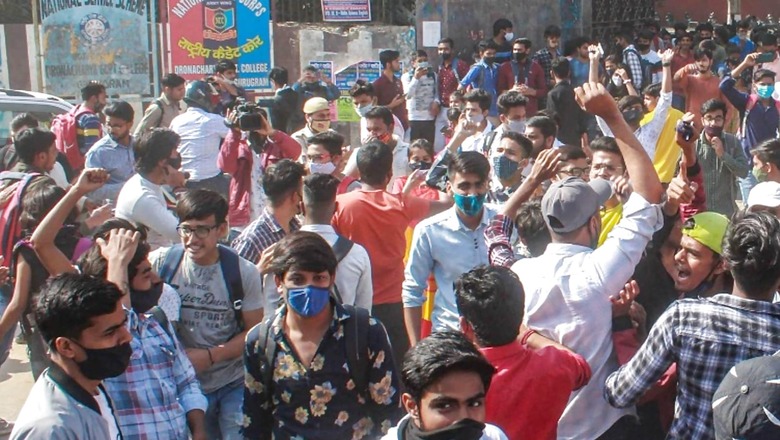
views
India is striving to achieve many ambitious developmental targets it has set for itself. All the stakeholders including companies are making dedicated efforts to contribute their best and propel the economy. However, they are struggling to deal with a tough challenge – a dearth of skilled workforce.
As a result of the skill gap in our education system, our youth is struggling to meet the evolving needs of industries which consequently is creating a major roadblock in optimizing the nation’s employability. According to ManGroup’s Talent Shortage 2020 report, data represents that around 63 per cent of the companies in India are struggling with a shortage of talent.
Also read| SSC GD Recruitment: Apply for 24,369 Constable Posts in BSF, CISF, CRPF, ITBP, Salary Up to Rs 69,100
The National Employability Report for Engineers 2019 shows that over 80 per cent of engineering graduates are not employable. Despite these discouraging figures, only engineering and MBA graduates are considered employable in India as other degrees show even worse results. This situation causes a sudden rise in unemployment every year when new batches graduate while decreasing the overall productivity of the economy.
The rapid pace of technological advancement in the last few decades has transformed the working ecosystem entirely. It has not only necessitated companies to employ a skilled workforce to remain competent in the highly competitive environment but also enhanced their expectations manifold.
What industry demands
As per a report by India Education Forum 2021, the key skills that matter more for employers are communication, presentation, attention to detail, research, analytical skills, and writing skills. They also seek a diverse set of domain knowledge that can help an organisation in different ways.
Artificial intelligence, machine learning, data analytics, and business analytics are some of the domain skills that are high in demand. Further, employers prefer employees who require minimum time for ‘on-the-job’ training. Hence, job-ready candidates are their first choice.
Why is there a skill gap in the Indian education system
Even though Indian educational institutions are providing degrees, they are unable to develop the skills required to get employment and meet industry standards. The primary reason is that the evolution of our curriculum has not been able to keep pace with the speed at which the world is evolving.
The syllabus, especially at the primary and secondary education level, still emphasises theoretical knowledge, leaving minuscule scope for practical and research-based learning. The syllabus of 11th and 12th and beyond is developed around theoretical knowledge. These age-old theories are also struggling to find their place in today’s modern world. Most regions in the country lack basic lab facilities and qualified teachers. Even science subjects are taught theoretically, leaving the practical aspects untouched.
The Indian education system follows a one-size-fits-all approach which makes the ecosystem weak for students with lower cognitive ability. While trying to teach students in the same, we make weak students even weaker, leaving them to lurch after they graduate. Our students are struggling when it comes to communication, presentation and other soft skills. The situation is worse in the remotest areas of the country as it lacks the basic necessities and infrastructure to impart skills to students such as a computer lab and internet facility.
How to bridge the gap and meet industry demand
To meet these industry demands and ensure quality output, we need to change our curriculum and introduce relevant subjects or courses accordingly. We need to include subjects and courses that are in demand in our curriculum and give more stress on vocational education from elementary schooling to higher education like engineering and MBA.
By offering learning in the domain of complex programming, artificial intelligence, machine learning and data handling, we will facilitate our youth to adapt to the evolving environment. At the same time, we need to offer smooth access to technology to students irrespective of their location to develop digital skills and help them grasp the content quickly and effectively.
Additionally, we must focus on periodic training of teachers which is quintessential to enhance students’ abilities. With training, they will be able to keep things updated as per the evolving needs of the world in terms of technology and soft skill.
As industrial revolution 4.0 is knocking on our doors, India is witnessing a rise in demand for a workforce ready with futuristic skills as per the new-age technologies. Organisations functioning across segments are opening up newer roles, requiring innovative thinking, creativity and skills of the 21st century. We need to take the necessary steps today to make our youth ready for these roles and future challenges. We have to impart technical as well as soft skills to bridge skill gaps and prepare our youth for leadership roles. These are basic grass root level changes that need to be deployed today in order to fulfil our nation’s dreams tomorrow.
— Authored by Piyush Nangru, Co-founder and COO, Sunstone
Read all the Latest Education News here




















Comments
0 comment